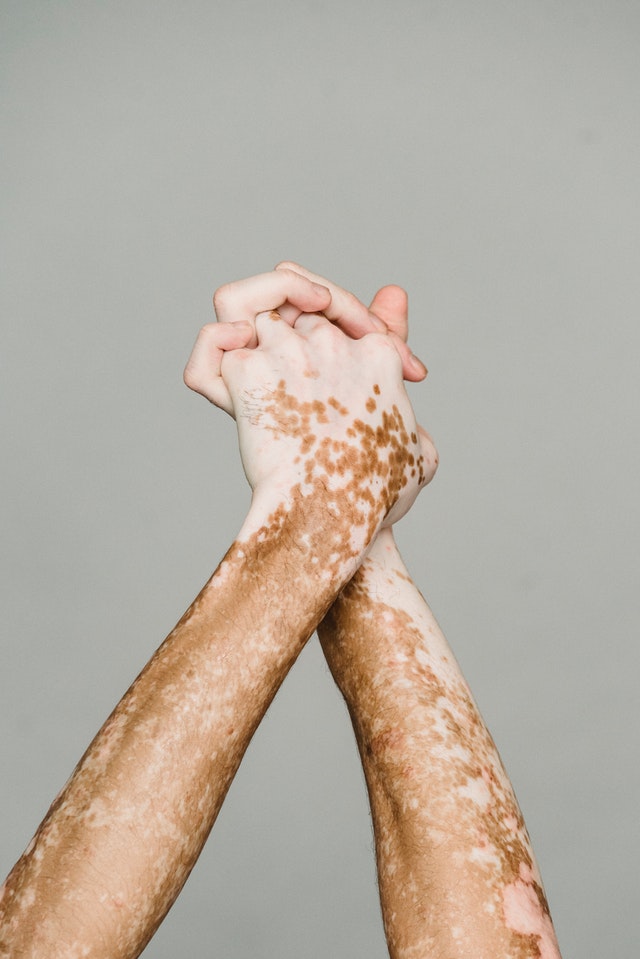I recently came across an interesting YouTube video that was released a couple of years ago suggesting serious skin conditions mostly affecting the black & brown community such as vitiligo and melasma are being neglected by medical professionals. It even shared the fact that there are only 3% of dermatologists in the US are black or specialize in black skincare. A U.S. survey even showed that 47% of dermatologists felt that their training didn’t prepare them to treat black skin during medical school nor their residency.
While there remains no cure for some of these conditions, there should still be some thorough research being done to treat these serious conditions. Why are these conditions not being researched and treated properly? Why is there an alarming lack of diversity amongst dermatologists? Let’s examine this serious issue further.
Not Enough Dermatologists Specializing in Dark Skin
As was mentioned earlier, there has been a huge disparity of dermatologists properly trained in treating patients of color. The field of dermatology is said to be the least ethnically diverse specialty in all of medicine. A 2018 review of general medicine textbooks in the journal Social Science and Medicine shows that a big part of dermatology education is visual recognition. Physicians must be trained to identify images of skin conditions in their classrooms. However, the review states that most of those images shown in the classroom were white and only 4.5% were dark skin.
Because of this, most medical students studying dermatology often don’t learn about dark skin conditions and how to treat them properly. It takes a different level of training to treat black and brown skin.
Skin Conditions Affecting Dark Skin

Numerous skin conditions affect dark-skinned people more severely than light-skinned people. Many treatments are more effective in light-skinned people than with dark-skinned people. Dermatologists must be educated to understand dark skin, how certain skin ailments manifest differently in darker skin, and how to treat these conditions. For example, the skin condition psoriasis produces salmon-colored patches on light-skinned people, but it looks a little different on dark skin. It creates deep purple patches on this skin. If not recognized properly, the condition can be misdiagnosed and not given the right treatment.
Other skin conditions that primarily affect darker-skinned people include:
Vitiligo– This condition occurs in up to 2% of the population. Caucasian people and other light-skinned people do get this condition, but it is more noticeable in darker-skinned people. In vitiligo, the skin is depigmented causing large, white patches to develop all over the skin. There is no cure for this condition, but you can manage to live with it by finding a dermatologist with experience in treating it.
Eczema– This condition is characterized by an itchy, red rash that gradually develops and lasts a long time. Eczema can be triggered by allergies, irritations from cosmetic products, and dry skin. When it occurs in dark-skinned people, it is often misdiagnosed. When it is not treated early, it can increase the risk of pigmentation problems.
Keloids– This condition is caused by burns or cuts. It is a scar that spreads beyond the original place of the injury and develops into growth. The most common locations of keloids are the chest, back, and arms.
Future of Dark-Skinned Conditions Treatment
There must be more education in treating dark skin for dermatologists. There is currently a new program devoted to treating dark-skinned conditions at New York University (NYU) Langone Health. Hopefully, more medical schools and residencies will start to develop more programs for dermatologists in learning how to treat the dark-skinned complexion.
But until then, it’s also vital that if you’re a dark-skinned person dealing with any of these serious skin diseases, strive to find a specialist that is experienced in treating your condition. Make sure that dermatologist is also experienced in treating dark-skinned complexions. If you do your research, you will be successful in finding the quality care your skin needs.
Are you a dark-skinned person coping with any of these skin conditions? How do you feel about the fact that there are a limited amount of dermatologists of color? Share your thoughts in the comments section below. As always, please like or share this post with someone you know dealing with a skin condition.

